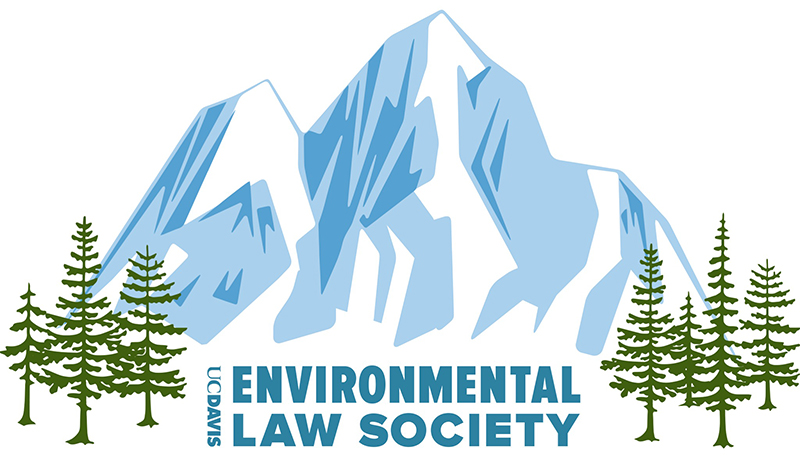For a .pdf of the official event program, please click HERE.
8:30am - 9:00am: Breakfast and Check-in
9:00am - 9:45am: Opening Remarks, Introduction, and Keynote
Symposium Organizers
Janaki Jagannath ‘20
Keynote Presentation
Jared Blumenfeld, Secretary, CalEPA
9:45am - 11:00am: Solid Waste: Reduce, Reuse, Recycle, Regenerate
The face of solid-waste management has changed dramatically since the 1960s/70’s push to reduce, reuse, recycle. In addition to China’s ban on the import of US plastics, today California is working to meet ambitious methane reduction goals from our state’s landfills. The rapid expansion of composting capacity, strategies to divert food waste, and supporting the industry in transition are key features in reaching our state climate goals. This panel discusses recent developments and the road ahead for the management of California’s solid waste.
- Elliot Block, Chief Counsel, Cal Recycle
- Nick Lapis, Director of Advocacy, Californians Against Waste
- Kelly Astor, Partner, Astor & Kingsland LLP
- Gustavo Aguirre Sñr., Committee for a Better Arvin, Director of Organizing, Center on Race, Poverty, & the Environment
Moderator: Janaki Jagannath, Environmental Law Society Symposium Chair, UC Davis School of Law
11:00am - 11:10am: Morning Break
11:10am - 12:25pm: Hazardous Waste: Public Process in the Crosshairs
The production and disposal of pharmaceuticals, plastics, batteries, medical equipment and countless other goods upon which we rely day to day create sources of hazardous waste which are regulated differently from other waste streams for their toxicity and potential for public health hazard. The history of siting of hazardous waste facilities in low-income communities of color has been a driver of organizing for environmental justice, a grassroots movement which has shaped the way both federal and state EPAs contend with hazardous waste management. This panel focuses on modern legal challenges in hazardous waste management and uncovers the way governments and communities communicate in the crosshairs of cleanup and remediation.
- Letitia Moore, Senior Counsel, Holland & Knight
- Cesar Campos, Supervisor, Office of Public Participation, California Department of Toxic Substances Control
- Ingrid Brostrom, Assistant Director, Center on Race Poverty & the Environment
- Nayamin Martinez, Director, Central California Environmental Justice Network
Moderator: Clare Cannon, Assistant Professor, UC Davis Center for Regional Change
12:30pm - 1:20pm: Lunch
1:20pm - 2:35pm: Agricultural Waste: Spotlight on Dairy Farming
California dairy carries our state to the top of the United State’s farm gate incomes and stocks millions of grocery store shelves across the nation in the form of processed cheese, whey protein, milk powder, and of course, fresh dairy products. Under scrutiny for impacts on air quality and local groundwater, however, the dairy industry is not without its waste management challenges. This panel explores the policy responses to these challenges, and California’s next steps in developing a dairy farming system that is both sustainable and practical.
- Jennifer Fearing, Fearless Advocacy Inc.
- Christian Griffith, Chief Consultant, Assembly Budget Committee
- Senator Dean Florez, California Air Resources Board
- Jenny Lester Moffitt, Undersecretary, California Department of Food and Agriculture
Moderator: Mary Louise Frampton, Professor of Law, Director of Aoki Center for Critical Race and Nation Studies, UC Davis School of Law
2:35pm - 2:45pm: Afternoon Break
2:45pm - 4:00pm: Local Solutions: Resident Power in Transforming Waste to Energy
Although waste-to-energy technology in its many forms is being actively explored by university researchers and supported by the state for the purpose of reducing greenhouse gas emissions, local resident communities who struggle with the worst impacts of industrial waste dumping and facility siting are hard at work building solutions that improve local health outcomes and build community resilience to climate change. In this panel, we discuss issues of access to the benefits of waste-to-energy technologies in California’s most polluted areas and explore alternative local projects that mitigate the impacts of climate change and relieve communities of local pollution burdens.
- Martha Guzman Aceves, Commissioner, California Public Utilities Commission
- Dan Noble, Director, Association of Compost Producers
- Madeline Stano, Energy Equity Counsel, Greenlining Institute
- Kassandra Hishida, Director, Community Alliance for Agroecology
Moderator: Phoebe Seaton, Leadership Counsel for Justice and Accountability
